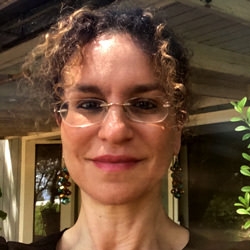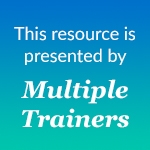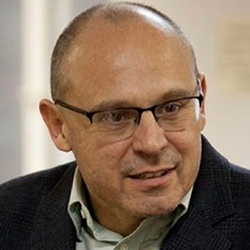
Search Results: systemic
-
Society gives us short-sighted explanations about human nature, life and what’s (un)changeable. The coronavirus pandemic is disrupting that explanation. Our current social order upholds impoverishment, police brutality, and is leading us towards our extinction. Change begins with people mobilizing resources towards a vision that holds systemic care for all, plus engages shared risk and collective action towards that vision.
-
In this excerpt from Roxy Manning's 2019 Social Change session at the NVCfest, she explores the application of Nonviolent Communication (NVC) to address both immediate conflicts and broader systemic issues. She emphasizes the importance of intervening at multiple levels, from stopping harmful behavior in the moment to driving long-term societal change.
-
-
-
- Learn how to set up and maintain effective systems
- Acquire tips for harnessing community buy-in and the energies of key people
- Transform tension and anxiety into peaceful, life-enriching energy
- Remain grounded and confident when facing any kind of conflict
-
-
Join Aya Caspi, a Certified NVC Trainer, as she delves into the difficult topic of parenting, childhood trauma, and social status. She discusses the generational impact of being labeled by society as "less than" or subservient. The wounds of childhood trauma can be healed so they no longer are a means of control by a dominant culture.
-
Please listen as we discuss and grapple with the issues of growing polarization in our world, political structures and personal relationships.
-
Listen as Liv shares her experience of mediating conflict between two groups: using NVC to ascertain the needs of both sides, raise awareness, and diminish polarization.
-
-
-
There's a danger in using empathy exchange to perpetually recirculate and exchange pain (often by telling and re-telling the same old stories), rather than using it as a catalyst for transformation. It can create and further pain in whatever form: anger, destructiveness, hatred, grief, emotional drama, and violence. It can also reinforce dualistic evaluations of "met" vs "unmet" needs. And it can slow down productivity.
-
Duke Duchscherer explores responding to people who are committed to a punitive process rather than a restorative process. He suggests looking for what needs are met by the punitive process. Could those needs be met in a restorative process?
-
Transforming organizational culture requires attention and change at the systemic level. Learn which systems are crucial for any organization to establish and clarify whether that organization is collaborative or not, and then learn how to create and strengthen a collaborative organization.
-
There are many polarizing issues we can resist and fight over. The word "resistance" can mean fighting against what we don’t agree with in counterproductive ways. It can also be the illusion and futility of mentally fighting against reality of 'what is'. But acceptance, non-resistance, of what is doesn’t mean powerless resignation. Another way to resist is to accept and love whole-heartedly, with empathy and care for the people doing the things we are resisting.
-
Trust, flow, information sharing, and learning is reduced in conflict. Conflict can indicate incapacity in at least one of five systems that every group, community, or organization needs to function. Attending to conflict at systems-level helps reduce over relying on momentary connection that isn’t anchored in decisions about what comes next. When there's enough agreed upon systems within capacity, that attend to enough kinds of situations, we're likely to have little conflict.
-
Human health is connected to health of ecosystems and other societies. Our wellness and liberation is found in our interconnection, kinship, reverence for life, and solidarity. Solidarity erodes through narratives, practices and policies that separate us from each other -- and this impacts societal functioning. The breakdown creates conditions for pandemic, racism, police brutality, exploitation in untold numbers, and extinction. Read on for how all is connected.
-
Here are five practical ideas from Ceri, Jo, and Sarah for creating simple agreements with any group you are working with when conflict arises!
-
By focusing on NVC process and practice without factoring in the interdependent, systemic dimension we unwittingly diminish the power of NVC. We reinforce the dominant paradigm, rather than challenging it -- making NVC one more tool for compliance. NVC principles can turn against its own purpose in cruel ways. NVC could also empower social change. We'll need our attention on this matter if we are to contribute to transforming the oppression we face and our collective march towards extinction.
-
Within the pandemic, limitations of our market economies are more visible. Extreme need is exposed when the economy is collapsing and so many people are without jobs. We can now see how it’s possible to direct resources where they are most needed, solely out of care and interconnection. This is a call to explore a more viable way of living, that centers relationship over transaction.













